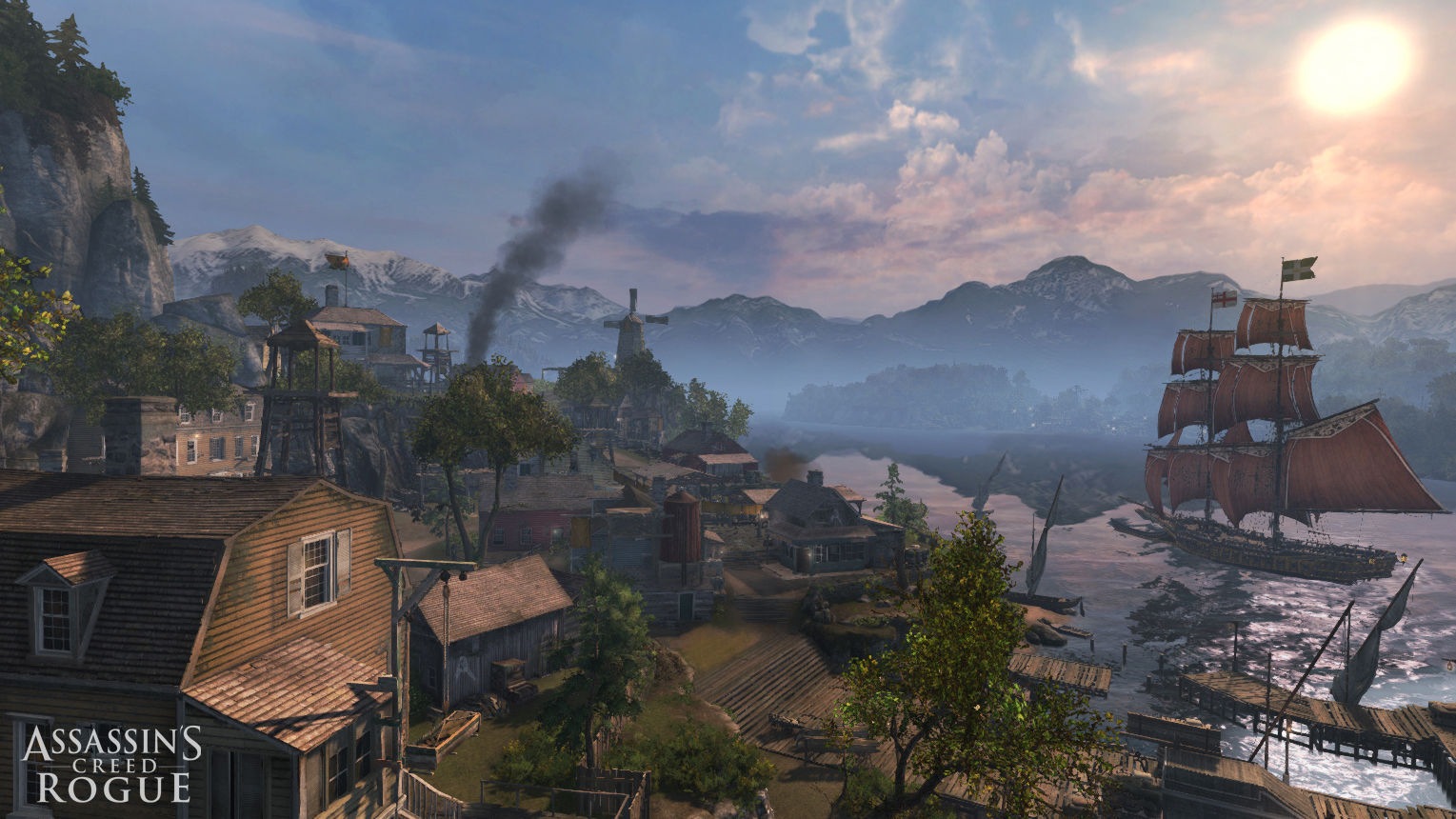The captain has returned!
The annualization of the Assassin's Creed series presents a constant dilemma for Ubisoft in which the company must satisfy fans and reinvent itself in some way to appeal to a larger market. Though the core mechanics remain largely unchanged on a game-to-game basis, the transition in setting with each new release does enough to establish a unique identity. This year marks a shift in strategy with two Assassin's Creed titles, and thus Ubisoft faces an identity crisis with Assassin's Creed: Rogue.
Whereas Assassin's Creed Unity tackles the French Revolution and new co-operative multiplayer options, Rogue presents itself as a natural extension of last year's Assassin's Creed IV Black Flag. The pirate theme still proves effective as I have yet to tire of naval combat and travel, but it also feels less of a step forward than other entries. The story explores new angles within the series and benefits from it, but it's not enough to distinguish Rogue as a particularly great Assassin's Creed game.
Assassin's Creed: Rogue tells the tale of Shay Patrick Cormac, an Irish Assassin-in-training who comes off as brash and unruly in front of his superiors. Despite his questionable attitude, he shows promise and knows how to captain a ship. Consequently, he's ordered to investigate the Templars in the North Atlantic and help recover important Precursor artifacts. It's all very straightforward and focuses heavily on historical events, with few pivotal moments outside of the Animus. But the narrative takes a key turn about a third of the way through and the insubordination of Shay turns far more sinister.
Much of Rogue explores Shay's experiences as a Templar, the main antagonistic group of the series. His turn from Assassin to Templar isn't the most shocking revelation based on his attitude early in the game, but it's presented in a subtle and emotionally complex manner. Shay clearly has conflicted feelings about the Assassins, but he also wants to do what's right. He doesn't simply join the Templars because he's evil—he wants to find the truth in a morally gray world. Shay's vulnerability and progression throughout the course of the narrative results in a dynamic protagonist and stands out as one of Rogue's greatest strengths. It also allows Ubisoft to focus more on characterization and less on crazy Animus plot threads, which are often too absurd for their own good.
Shay represents the new in Rogue, while the rest of the game clearly uses Black Flag as an inspiration. Players gain access to a ship—the Morrigan—in the opening moments of the game and anyone who played last year's Assassin's Creed knows what to expect. Shoot enemy ships with cannonballs, upgrade parts on the Morrigan, collect sea shanties… the list goes on and on. It works both for and against Rogue in the sense that Ubisoft presented this experience just a year ago. The game does include a few tweaks to the formula with the addition of ice sheets and burning oil among other things, but they do little to push the series in any particular direction.
The threshold for another Black Flag-esque experience depends on each individual player. Part of me feels disappointed at many noticeable similarities, but at the same time I sport a huge grin on my face every time I get on the Morrigan and my crew cheers at my return. I also take great joy in listening to the crew sing sea shanties as I journey to my next objective on the open seas. Naval combat begins to wear thin after a while, but even that aspect of the game has its moments, especially in some of the bigger battles. It all makes less of an impact than Black Flag did a year ago, but it's not as if the naval elements of the series have been done to death.
Rogue does present a change of scenery, though. Gone are the picturesque Caribbean locales of Black Flag. Instead, players explore the North Atlantic and New York as they plow through ice sheets and avoid (or shoot) giant glaciers. It looks surprisingly beautiful on last-gen hardware, but performance remains an issue with plenty of dips in frame-rate. The technical issues aren't enough to ruin the experience in any meaningful way, but they absolutely stand out and diminish an otherwise visually appealing game.
Despite the many options at the player's disposal, I spent much of my time in Assassin's Creed: Rogue with the main story missions. Shay's tale acts as a driving force, but I'm also at a point in the Assassin's Creed series where I largely avoid extraneous activities. Ubisoft clearly wants to present Rogue as a large world with plenty to do, but it all feels like quantity for the sake of quantity. None of the side missions or activities stand out as particularly compelling and the endless number of items to collect just makes the map look like a jumbled mess half the time. The story missions are strong enough to compensate for some of the lackluster optional content, but it still establishes a mark of hollowness in the overall experience.
Assassin's Creed fans who enjoyed Black Flag will likely enjoy Rogue as long as they're up for more naval adventures. The game fails to stand out in the sea of Assassin's Creed releases, and its status as the second AC game in a single year further diminishes its identity. Shay's turn from Assassin to Templar leads to a narrative in which players become invested in the protagonist, more so than the past couple entries in the series. That alone makes it a satisfying, if not great, experience.
Copy provided by publisher. Review based on PlayStation 3 version. Also available on Xbox 360 and PC.
-
Shay's turn from Assassin to Templar
-
Plenty of content
-
Optional content is largely forgettable
-
Very similar to Black Flag
-
Naval combat/traversal still has its charms
-
Performance issues
Assassin's Creed Rogue Gallery
-
Assassin's Creed Rogue Gallery #1
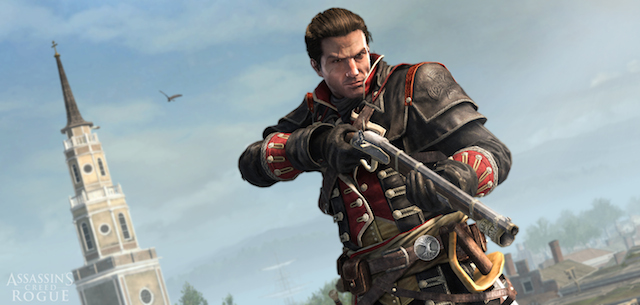
-
Assassin's Creed Rogue Gallery #2
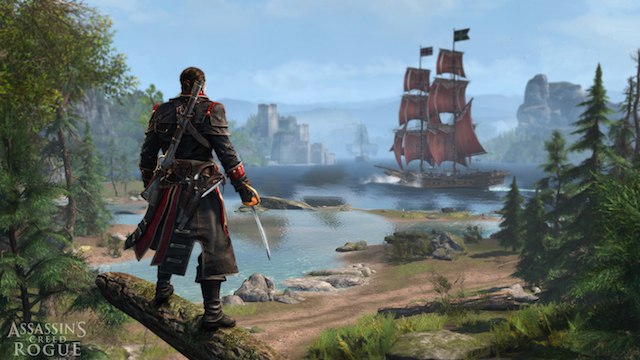
-
Assassin's Creed Rogue Gallery #3
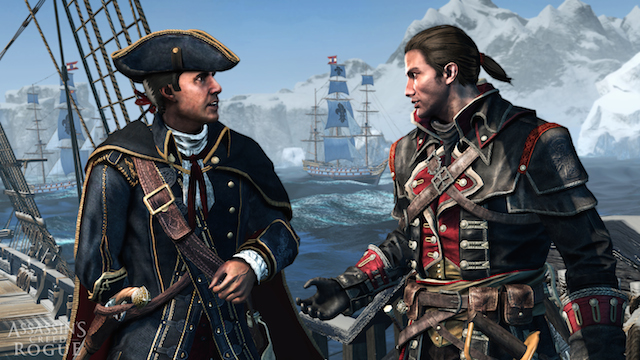
-
Assassin's Creed Rogue Gallery #4
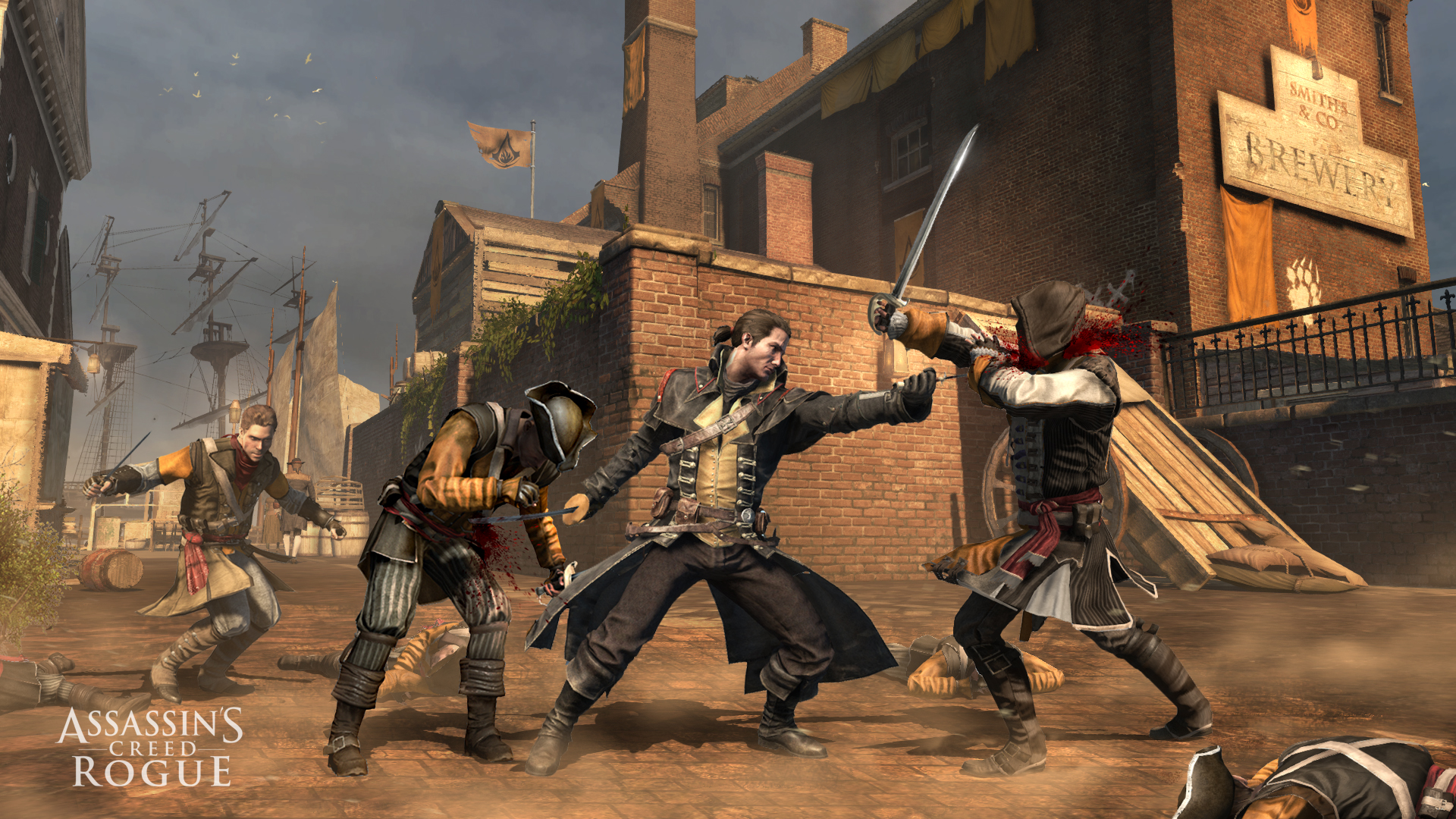
-
Assassin's Creed Rogue Gallery #5
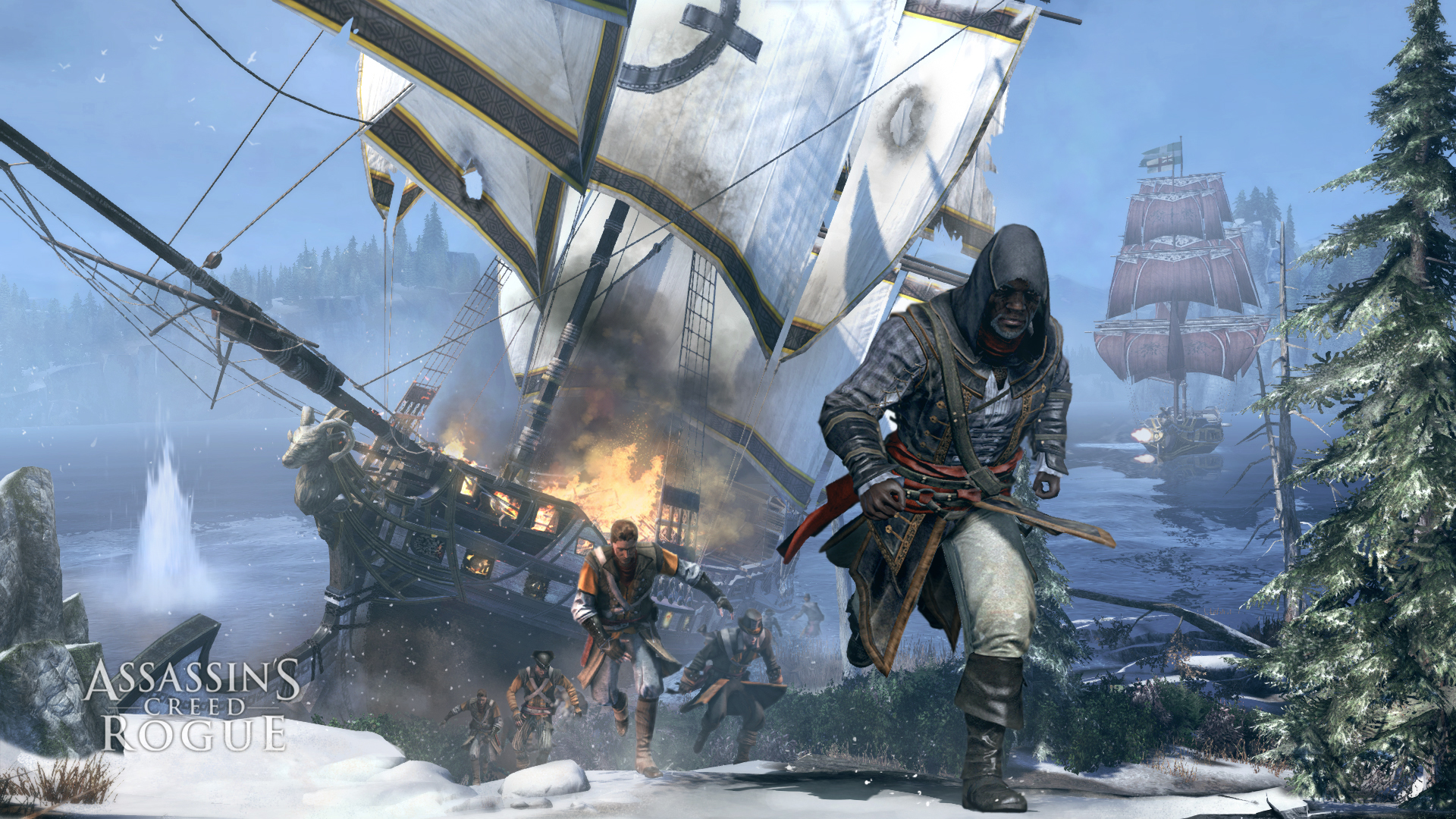
-
Assassin's Creed Rogue Gallery #6
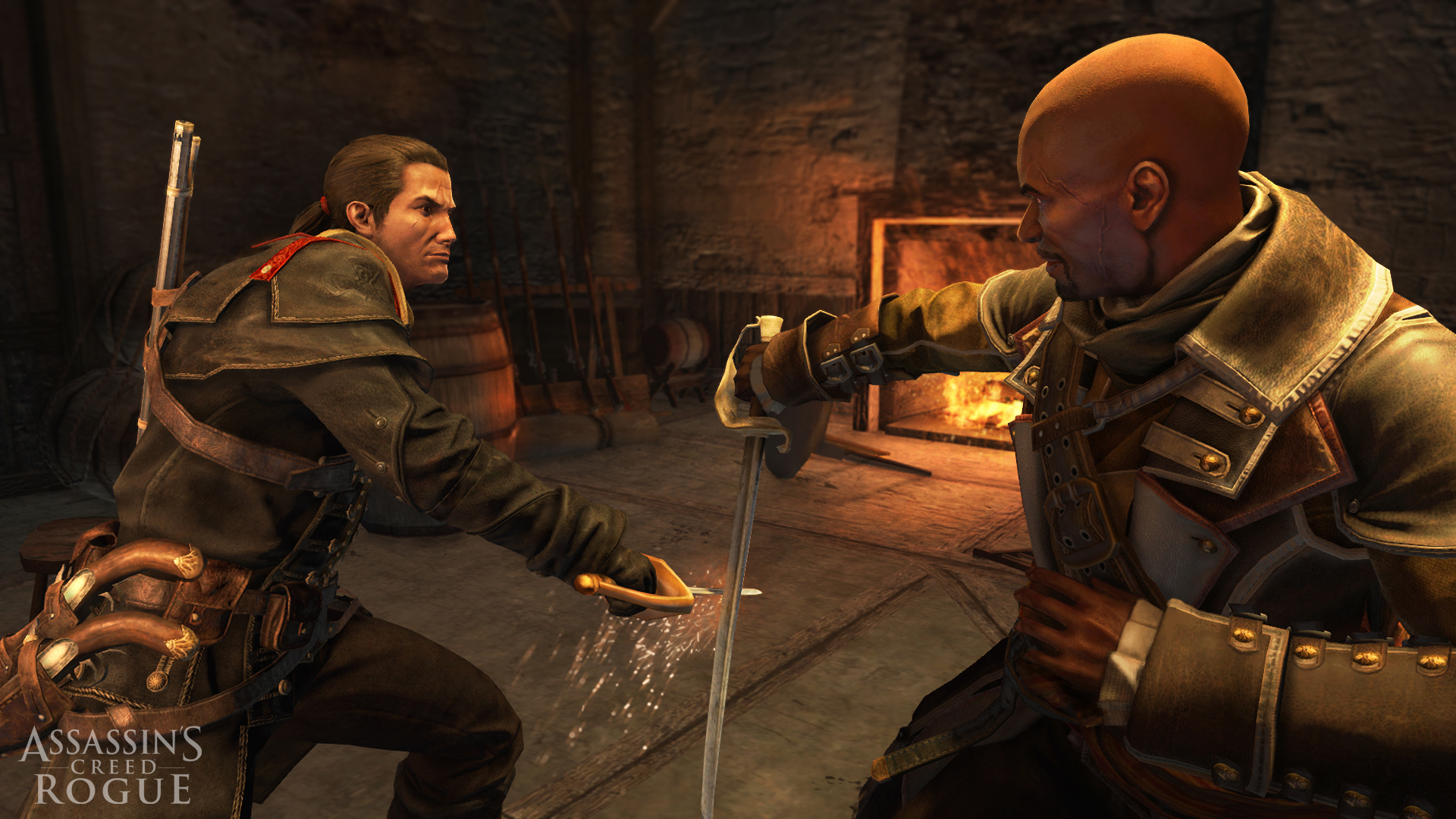
-
Assassin's Creed Rogue Gallery #7
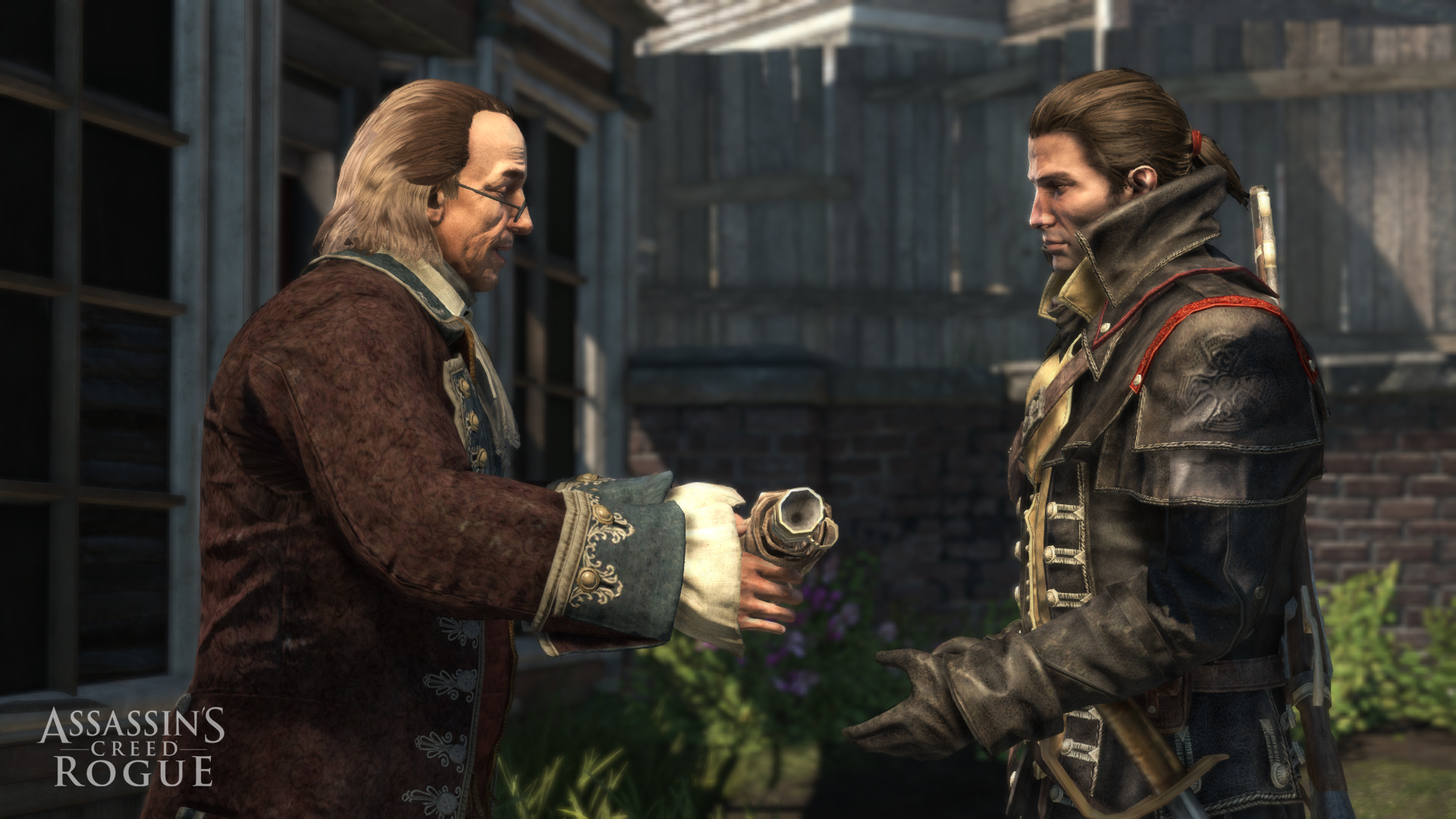
-
Assassin's Creed Rogue Gallery #8
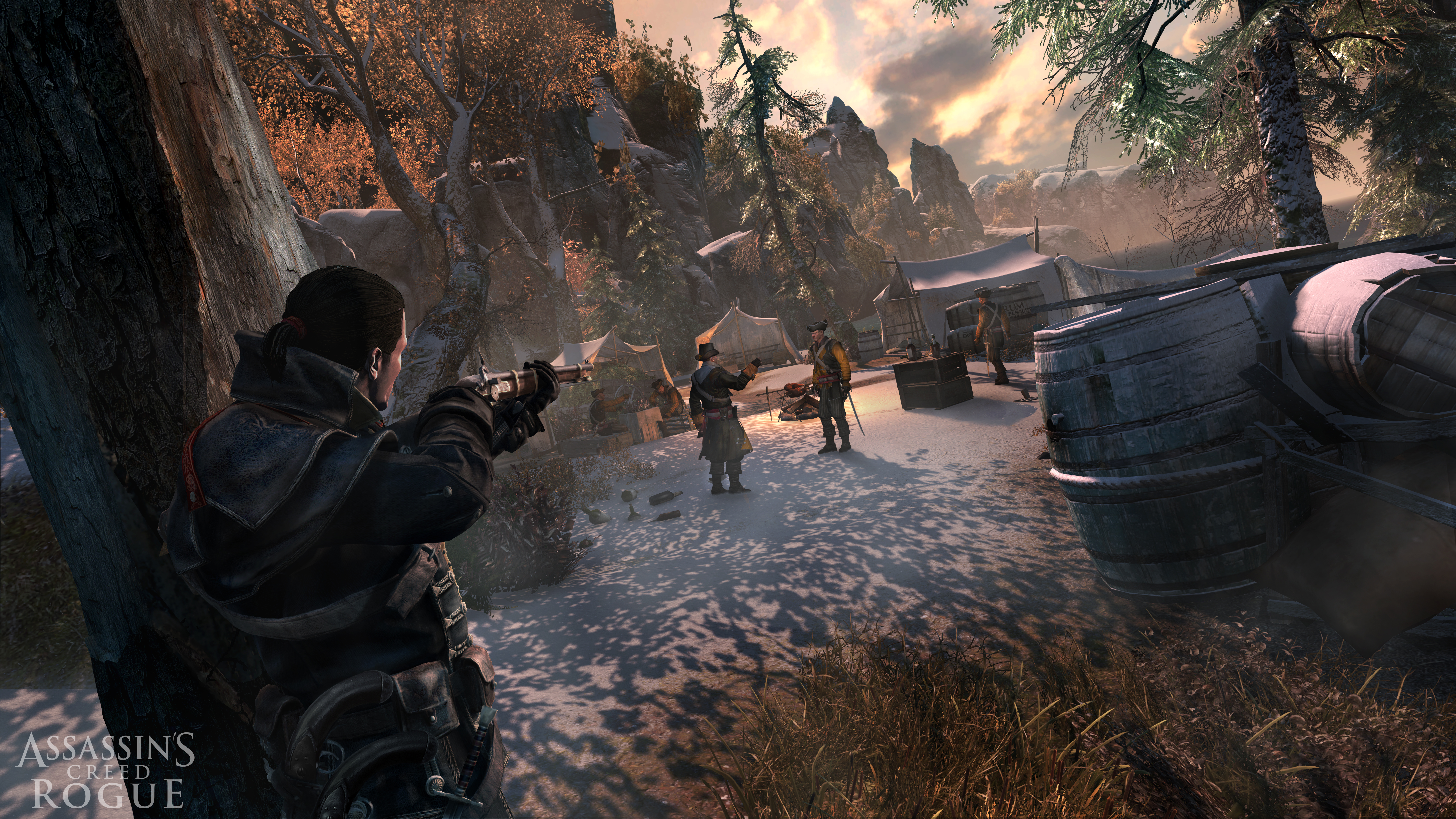
-
Assassin's Creed Rogue Gallery #9
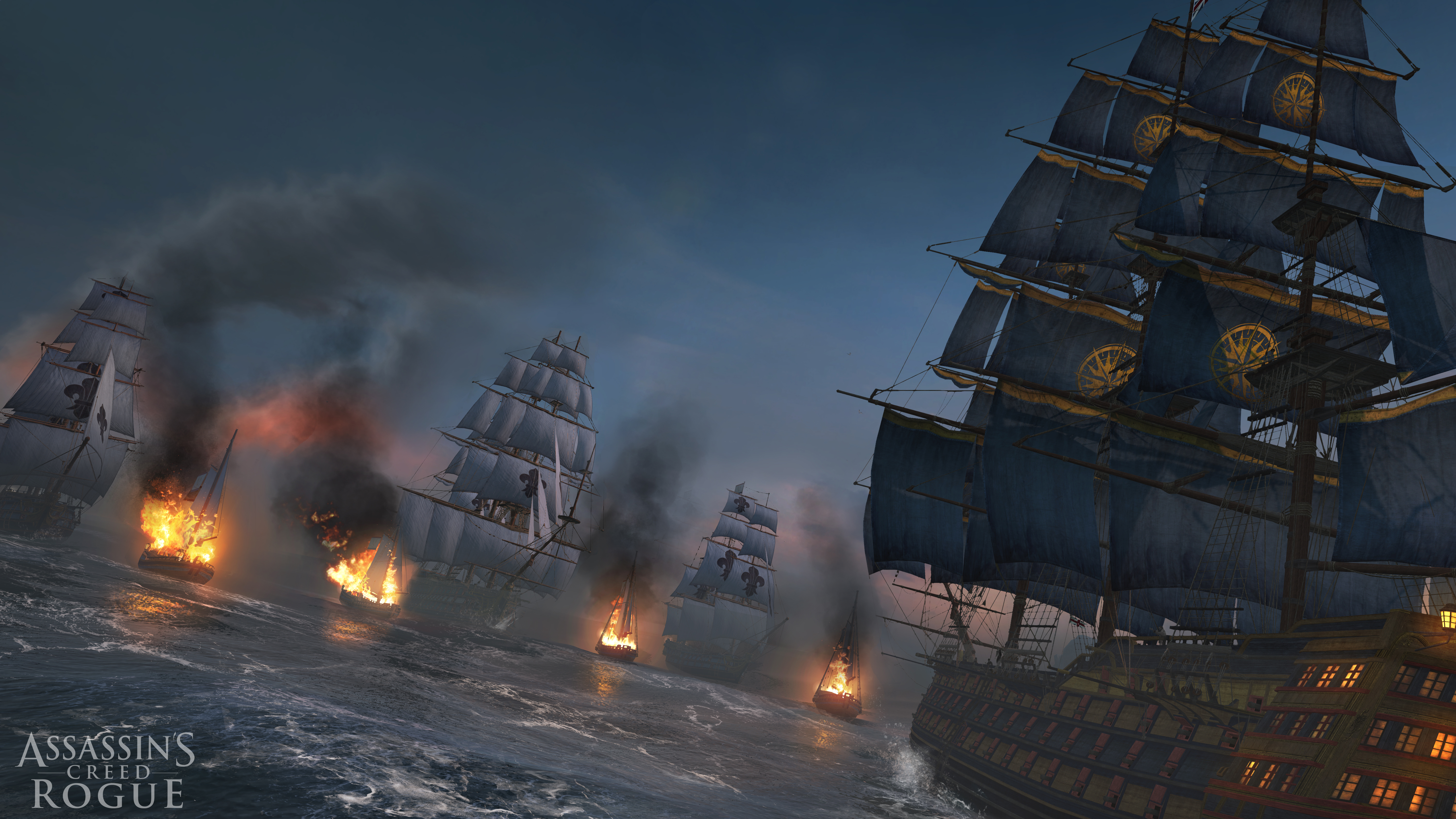
-
Assassin's Creed Rogue Gallery #10
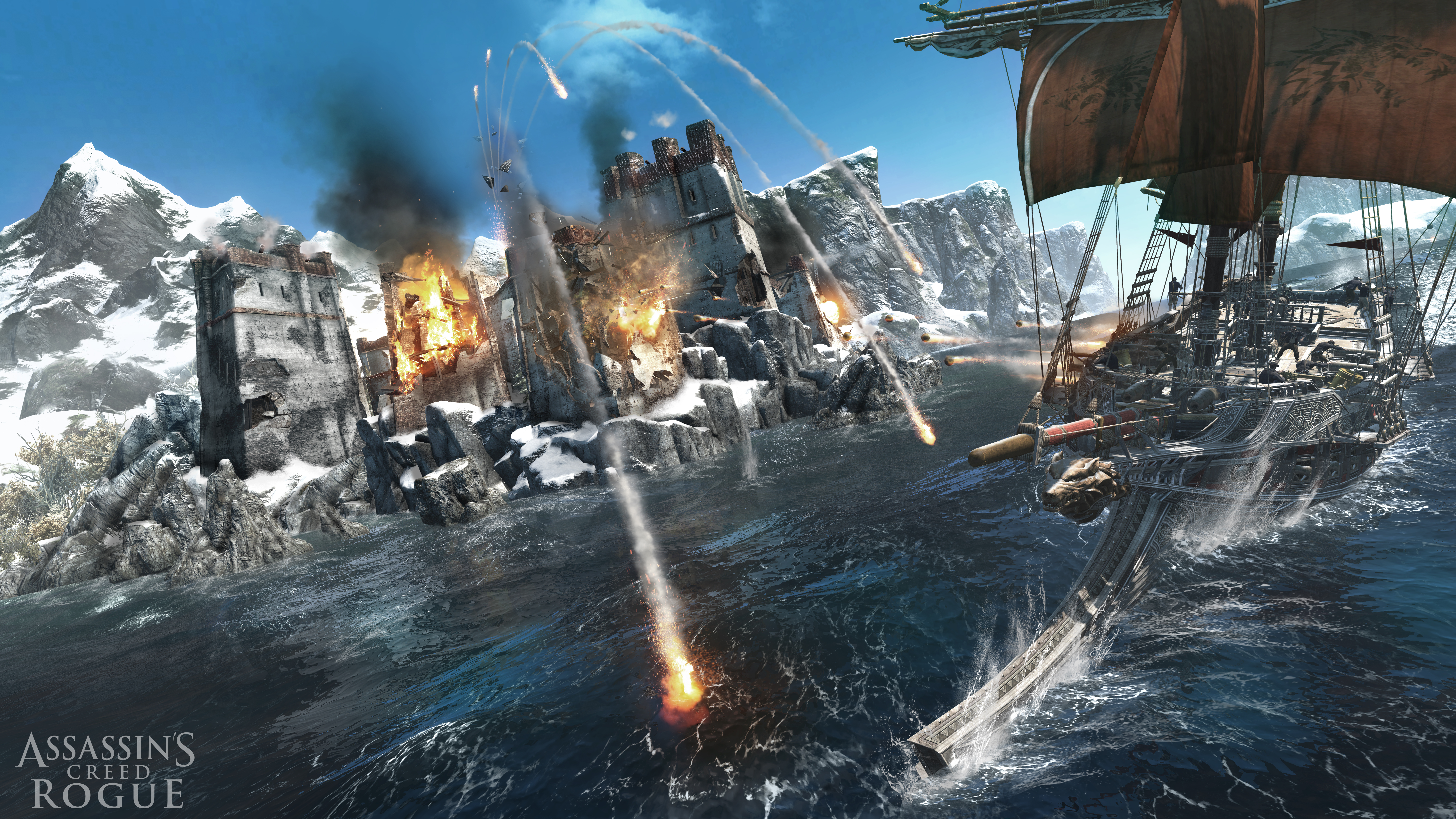
-
Assassin's Creed Rogue Gallery #11
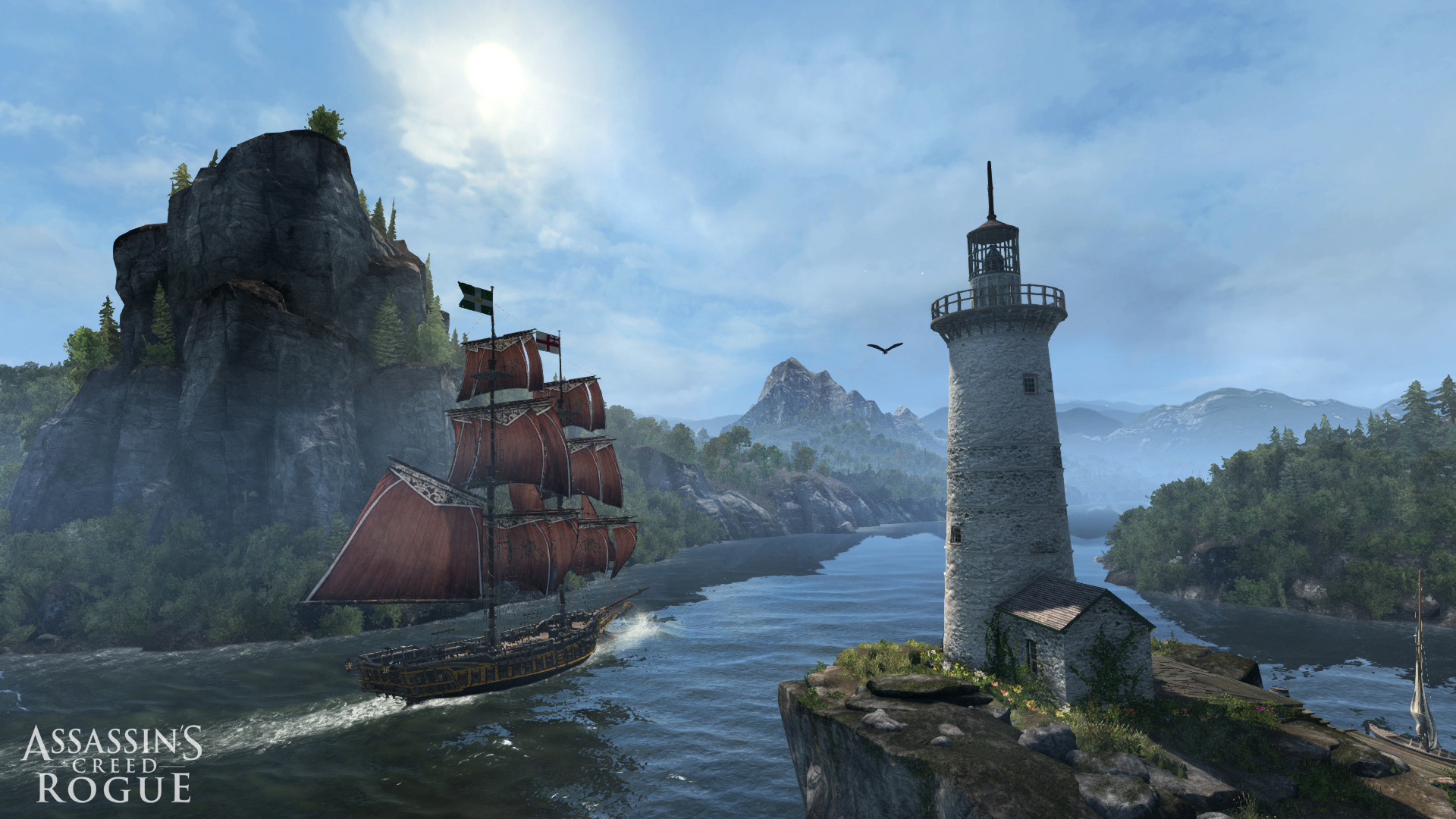
-
Assassin's Creed Rogue Gallery #12

-
Assassin's Creed Rogue Gallery #13
